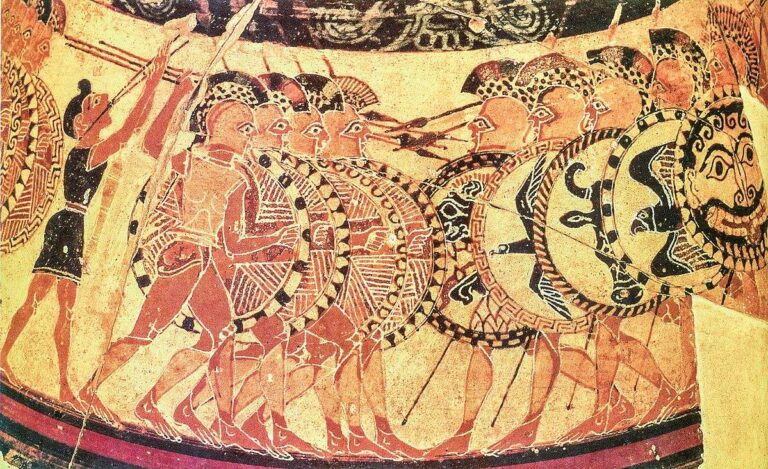Europe got its name from the Greek princess of Phoenicia, Europa. According to Greek mythology, Zeus, the king of the Olympian Gods, transformed into a beautiful white bull to abduct the girl he loved.
The story of Europa is one of the most famous tales of love and lust between the gods.
Zeus was not only known for being the most prominent deity in the ancient Greek pantheon. He also had a reputation for his endless affairs. His many children, not all of which were from the same mother, had the most extraordinary origins one could imagine.
Europa’s Divine Greek God Ancestry
Europa was the only daughter of King Agenor (meaning heroic or manly in Greek) and Telephassa (meaning shining from afar), who were rulers of Phoenicia. Agenor was the son of the god Poseidon and Libya. Libya was the daughter of the King of Egypt, Epaphus, who was the son of the almighty god Zeus. Europa’s mother, Telephassa, was the daughter of Nilus, god of the river Nile and of the Nymph Nephele, an Oceanid that Zeus created in the form of his wife, goddess Hera, to trick king Ixion.
Zeus was smitten by Europa, the beautiful Princess
As the tale goes, Zeus was so smitten by the beautiful Greek princess of Phoenicia that he transfigured himself into a marvelous white bull to seduce her.
Europa was picking flowers with her helpers when she suddenly saw the bull approaching from afar. The princess was astonished by the beauty of the animal. As they neared each other, he quickly leaned down at Europa’s feet in an act of utter submission to her. Encouraged by her helpers, she climbed on the animal’s back.
Zeus got up and slowly started walking around. Soon, however, he accelerated his pace and eventually broke into a gallop, with Europa clinging on for her life. The king of the gods and the frightened princess reached the seaside and dived into the sea.

Zeus carried Europa to the Island of Crete
Europa’s parents were beside themselves, and Agenor sent out his sons to look for her, but in vain. They never found her, and were eventually forced to abandon their search for their sister.
Zeus had carried Europa from Phoenicia to Crete. Once they got to the island, Zeus reclaimed his human form and finally satisfied his lust by mating with her under an evergreen tree.
Meanwhile, Zeus was married to the goddess Hera, but he could not overcome his desire for the princess of Phoenicia.
Following their union, she gave birth to three sons who were noted for their fairmindedness and justice.

Gifts to Europa
Zeus loved Europa unconditionally; his love knew no bounds, so, in addition to the three divine children, she was granted three special and invaluable gifts.
The first was Talos, a giant bronze humanoid that served as her bodyguard. He was an invincible opponent who would not back down from a fight.
The second priceless gift was Laelaps, a dog that, according to Greek mythology, always caught what it hunted.
The final gift was a javelin. This weapon was unique because it had the power to never miss the target.
Zeus also gifted her a beautiful ornamental necklace that the god of fire, Hephaestus, had created.
First time “Europe” is Used as Geographic Term
Although no accounts describe what became of Europa after her adventure with Zeus, it is clear that her influence on the ancient Greeks was so significant that they named the continent after her.
The first recorded usage of Europe as a geographic term is in Homer’s Hymn to Delian Apollo in reference to the western shore of the Aegean Sea. Additionally, the Greek philosopher Anaximander and the geographer Hecataeus used it as a name for a region of the known world for the first time in the sixth century BC.
The word “Europe” is derived from the Greek words “eurus” (εύροσ-wide) and “ops” (ωψ-eye or face) but it is unknown whether the ancient Greeks thus named Europe after the facial characteristics they noticed in its inhabitants.
Source: Greek Reporter







